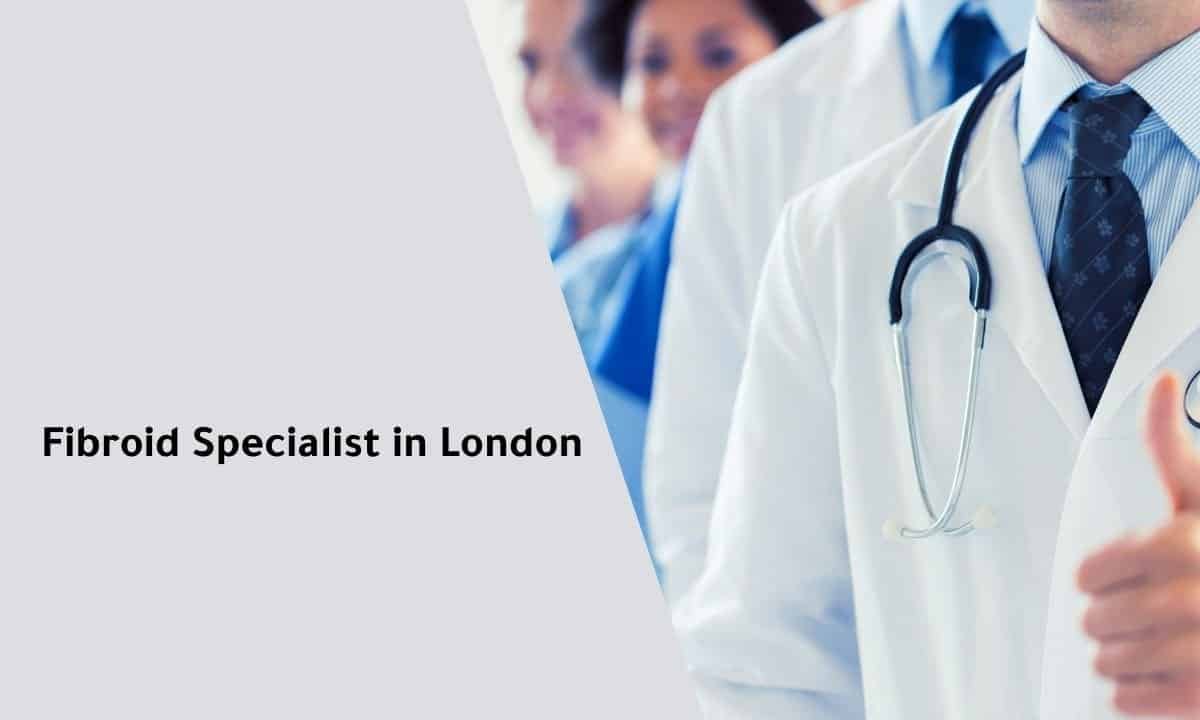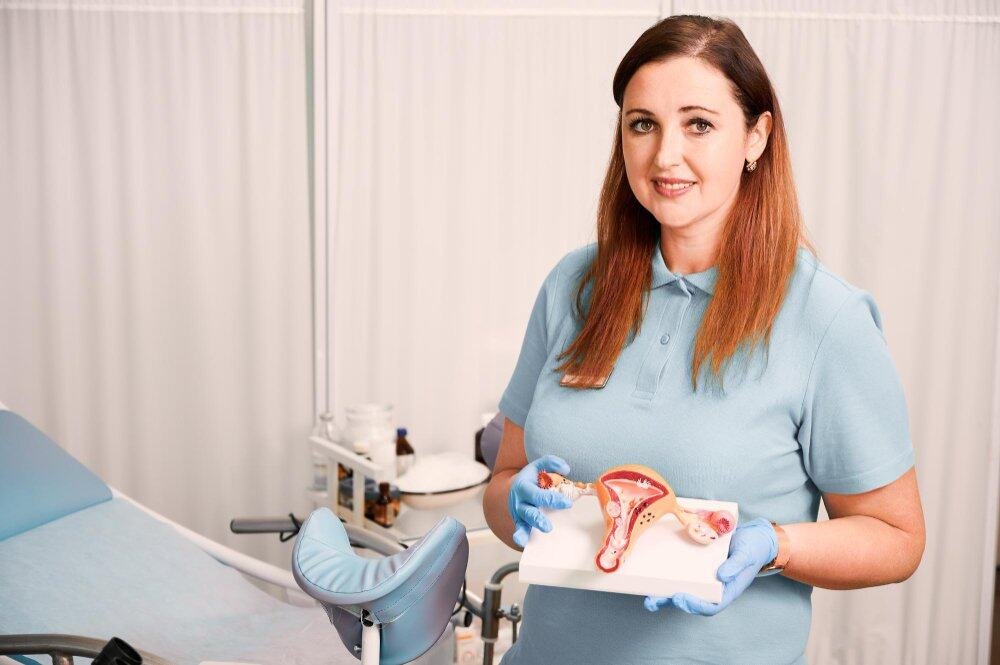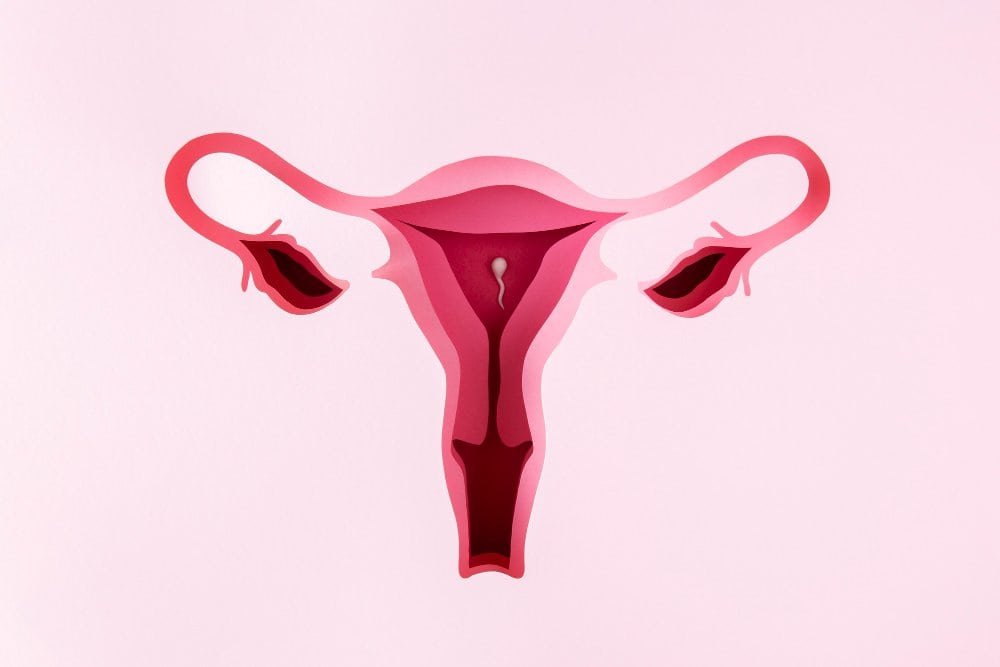Finding a highly qualified and experienced fibroid specialist in London is paramount when addressing fibroid-related health concerns. Dr. Samir Abdel Ghaffar, a renowned interventional radiologist, stands out as a leading expert in treating uterine fibroids. With a focus on minimally invasive procedures and patient-centered care, Dr. Abdel Ghaffar offers comprehensive fibroid treatment options to women in London.
Dr. Samir Abdel Ghaffar welcomes patients to his London clinic, where he provides expert consultations and personalized treatment plans. He performs advanced fibroid treatments at The Princess Grace Hospital and East Surrey Hospital, two of London’s most prestigious healthcare institutions. With a commitment to excellence and a track record of successful outcomes, Dr. Abdel Ghaffar ensures that his patients receive the highest standard of care for their fibroid-related issues.

How to Choose a Fibroid Specialist in London?
Choosing the right Fibroid Specialist in London is crucial for effective diagnosis and treatment. Here are some important factors to consider when making your decision:
Qualifications and Experience
- Education and Training: Ensure the specialist has the necessary medical qualifications, including a degree from a reputable medical school and specialized training in gynecology or interventional radiology.
- Experience: Look for a specialist with extensive experience diagnosing and treating fibroids. This includes years of practice and a high number of successful procedures.
Specialization and Expertise
- Specific Focus: Choose a specialist who specifically focuses on fibroid treatment. They should be knowledgeable about the latest treatment options and advancements in the field.
- Procedural Expertise: Ensure they are skilled in various treatment methods, including myomectomy, hysterectomy, uterine artery embolization (UAE), and laparoscopic surgery.
Hospital Affiliations
- Reputable Institutions: Check if the specialist is affiliated with well-known hospitals or clinics in London.
- Access to Facilities: Ensure the hospital or clinic has state-of-the-art facilities and equipment for diagnosing and treating fibroids.
Patient Reviews and Testimonials
- Feedback: Look for reviews and testimonials from previous patients. Positive feedback can indicate a high level of patient satisfaction and successful treatment outcomes.
- Recommendations: Personal recommendations from friends, family, or your general practitioner can also be valuable.
Consultation Process
- Initial Consultation: Pay attention to the thoroughness of the initial consultation. A good specialist will take time to understand your symptoms, medical history, and treatment goals.
- Communication: Ensure the specialist communicates, explains treatment options in detail, and answers all your questions.
Treatment Options
- Range of Treatments: A good specialist will offer various treatment options, from medications to minimally invasive procedures and surgery. They should tailor the treatment plan to your specific needs.
- Innovative Solutions: Look for up-to-date specialists who are aware of the latest advancements and can offer innovative treatments like robotic surgery or new medical therapies.
Follow-Up Care
Ensure the specialist provides comprehensive follow-up care, including regular check-ups and monitoring to track your progress and manage any potential complications.
Location and Accessibility
- Convenience: Choose a specialist whose clinic or hospital is easily accessible from your home or workplace. This will make attending appointments more convenient.
- Emergency Care: Ensure the facility offers emergency care if needed.
Cost and Insurance
- Transparent Pricing: Look for specialists who provide clear information about the costs of consultations, procedures, and follow-up care.
- Insurance Coverage: Check if the specialist accepts your health insurance and understand what costs will be covered.
Personal Comfort
It’s important to feel comfortable with your specialist. They should be empathetic, approachable, and respectful of your concerns and preferences.
What Causes Uterine Fibroids?
Fibroids, also known as uterine fibroids, are benign growths that develop in the muscle wall of the uterus. They are common among women, particularly those of reproductive age. While the exact cause of fibroids is not fully understood, they are believed to be influenced by hormonal levels, particularly estrogen and progesterone. Fibroids can vary in size and number and may cause symptoms such as heavy periods, pelvic pain, and pressure on the bladder or bowel.
The exact cause of uterine fibroids remains unknown. However, several factors may contribute to their development:
- Hormonal Influence: Estrogen and progesterone, two hormones that stimulate the development of the uterine lining during each menstrual cycle, appear to promote the growth of fibroids.
- Genetic Factors: A family history of fibroids can increase the risk.
- Other Factors: These include obesity, early onset of menstruation, and a diet high in red meat and low in green vegetables, fruit, and dairy.
Do I Need Fibroid Treatments?
The need for fibroid treatment depends on several factors, including the size and number of fibroids, the severity of symptoms, and the patient’s overall health and fertility goals. In many cases, fibroids may not cause significant symptoms and can be managed with regular monitoring. However, treatment may be necessary if fibroids cause heavy bleeding, severe pain, or fertility issues. Consulting with a specialist, such as Dr. Samir Abdel Ghaffar, is essential for determining the appropriate course of action.
What are the UK Surgical Treatment Options for Fibroids?
In the UK, several surgical options are available for treating fibroids:
- Myomectomy: This procedure involves the removal of fibroids while preserving the uterus, making it a good option for women who wish to maintain fertility.
- Hysterectomy: This surgery involves the removal of the entire uterus and is considered for severe cases where other treatments have failed.
- Laparoscopic Surgery: Also known as keyhole surgery, this minimally invasive technique involves small incisions and the use of a camera to remove fibroids.
- Uterine Artery Embolization (UAE): A non-surgical procedure performed by interventional radiologists like Dr. Samir Abdel Ghaffar, which blocks the blood supply to fibroids, causing them to shrink.
- Robotic Surgery: An advanced form of minimally invasive surgery that uses robotic systems to assist in the precise removal of fibroids.
Treatment of Fibroids with Uterine Artery Embolization
Uterine artery embolization (UAE) is a minimally invasive procedure used to treat fibroids by blocking their blood supply and causing them to shrink. This innovative treatment offers an effective alternative to more invasive surgical procedures, making it a popular choice for many women seeking relief from fibroid symptoms.
How Uterine Artery Embolization Works
UAE involves the following steps:
- Consultation and Imaging: Before the procedure, a thorough consultation and imaging studies, such as an MRI or ultrasound, are performed to evaluate the size, location, and number of fibroids.
- Procedure Preparation: The procedure is typically performed under local anesthesia with conscious sedation. This means the patient remains awake but relaxed and pain-free.
- Catheter Insertion: A small incision is made in the groin area, and a catheter is inserted into the femoral artery. Using fluoroscopic imaging, the catheter is carefully guided to the uterine arteries.
- Embolization: Once the catheter is in place, tiny particles, usually polyvinyl alcohol (PVA) or other biocompatible materials, are injected into the uterine arteries. These particles block the blood flow to the fibroids.
- Post-Procedure Care: The catheter is removed, and the incision is closed. Patients are monitored for a few hours before discharge, typically on the same day.
Benefits of Uterine Artery Embolization
- Minimally Invasive: UAE is a minimally invasive procedure requiring only a tiny incision, which reduces recovery time and the risk of complications.
- Effective Symptom Relief: Many women experience significant relief from symptoms such as heavy bleeding, pelvic pain, and pressure after undergoing UAE.
- Uterus Preservation: Unlike hysterectomy, the UAE preserves the uterus, making it a suitable option for women who wish to maintain their fertility.
- Short Recovery Time: Most patients can return to normal activities within one to two weeks after the procedure.
Potential Risks and Considerations
While UAE is generally safe, it is essential to consider potential risks and side effects, including:
- Pain and Cramping: Some patients may experience pain and cramping in the days following the procedure, which can be managed with pain medication.
- Post-Embolization Syndrome: Symptoms such as fever, nausea, and fatigue may occur but usually resolve within a few days.
- Menstrual Changes: Changes in menstrual patterns, including lighter or irregular periods, may occur after UAE.
- Non-Response: In rare cases, UAE may not effectively shrink the fibroids or alleviate symptoms.
Finding a Specialist
Choosing a qualified specialist is crucial for a successful UAE procedure. Dr. Samir Abdel Ghaffar, a renowned interventional radiologist and fibroid specialist in London, has extensive experience performing in the UAE and offers personalized care to ensure the best patient outcomes.
What Medications are Used for UK Fibroid Treatment?
Medications can be used to manage symptoms or shrink fibroids before surgery:
- GnRH Agonists: These drugs reduce estrogen and progesterone levels, leading to temporary menopause and shrinking of fibroids.
- Progestin-Releasing Intrauterine Device (IUD): Helps to relieve heavy bleeding caused by fibroids.
- Tranexamic Acid: An antifibrinolytic medication used to reduce heavy menstrual bleeding.
- Nonsteroidal Anti-Inflammatory Drugs (NSAIDs): These can help manage pain associated with fibroids.
- Iron Supplements: Often prescribed to women with heavy bleeding to prevent or treat anemia.
Can Fibroids Come Back After Fibroid Treatment?
Yes, fibroids can recur after treatment. The likelihood of recurrence depends on the type of treatment received. Surgical treatments like myomectomy do not prevent new fibroids from developing, whereas a hysterectomy provides a permanent solution. Non-surgical treatments such as UAE or medications may reduce the size of fibroids or alleviate symptoms but do not eliminate the possibility of new fibroids forming. Regular follow-ups with a gynaecologist or specialist, like Dr. Samir Abdel Ghaffar, are crucial for monitoring and managing the condition.
FAQS
1. Which doctor is best for fibroids?
The best doctor for fibroids would typically be a specialist gynaecologist or interventional radiology. Dr. Samir Abdel Ghaffar, an expert in interventional radiology and uterine fibroid treatment, is a renowned consultant based in London. He specializes in minimally invasive procedures like uterine fibroid embolization. For surgical options, gynaecologists and surgeons who specialize in myomectomy or hysterectomy at top hospitals such as Harley Street and Mayo Clinic are also highly recommended. Notable consultants like Dr. Funlayo Odejinmi and Dr. Parijat Bhattacharjee offer excellent care and expertise in this field.
2. What is the new drug for fibroids in the UK?
The latest drug for treating fibroids in the UK is Relugolix. This medication helps manage the symptoms of uterine fibroids, including heavy periods and pain, by lowering estrogen and progesterone levels. It offers a non-surgical option for women seeking effective treatment without undergoing surgery.
3. Is there a support group for fibroids in the UK?
Yes, there are several support groups for women with fibroids in the UK. These groups provide valuable support, information, and resources to help women understand and manage their condition. Support groups can often be found through hospitals, clinics, and organizations specializing in women’s healthcare. Online communities and forums also offer a platform for sharing experiences and advice.
4. How much does it cost to have fibroids removed privately in the UK?
The cost of having fibroids removed privately in the UK can vary depending on the procedure and the hospital. Myomectomy and hysterectomy can range from £4,000 to £10,000 or more, depending on the complexity and the specialist involved. Minimally invasive procedures like uterine fibroid embolization might cost between £3,000 and £7,000. Consultation fees with specialists like Dr. Samir Abdel Ghaffar typically start from £200 to £500, depending on the clinic and the expertise required.
Choosing the right fibroid specialist in London requires careful consideration of their qualifications, experience, and approach to patient care. By taking the time to research and evaluate potential specialists, you can find a professional who will provide the best possible care for your condition. For those considering treatment with Dr. Samir Abdel Ghaffar, a renowned interventional radiologist specializing in fibroid treatment, visiting his clinic’s website for more information and booking a consultation is a great first step.

 العربية
العربية 

